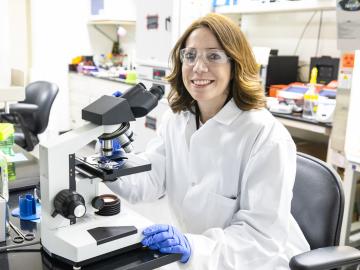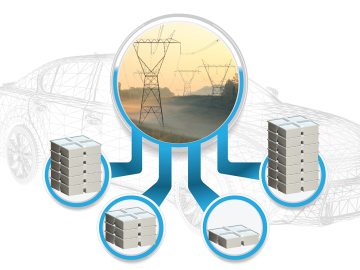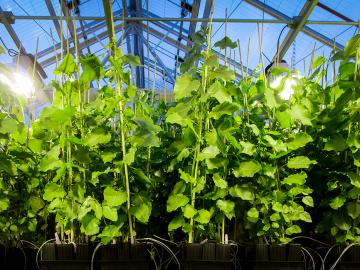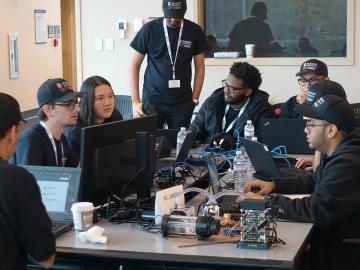
Filter News
Area of Research
News Topics
- (-) Bioenergy (31)
- (-) Composites (8)
- (-) Cybersecurity (14)
- (-) Energy Storage (29)
- 3-D Printing/Advanced Manufacturing (35)
- Advanced Reactors (10)
- Artificial Intelligence (38)
- Big Data (17)
- Biology (29)
- Biomedical (12)
- Biotechnology (7)
- Buildings (14)
- Chemical Sciences (24)
- Clean Water (10)
- Computer Science (58)
- Coronavirus (4)
- Critical Materials (6)
- Education (3)
- Emergency (1)
- Environment (62)
- Exascale Computing (17)
- Fossil Energy (2)
- Frontier (21)
- Fusion (14)
- Grid (21)
- High-Performance Computing (33)
- Hydropower (3)
- Irradiation (2)
- Isotopes (12)
- Machine Learning (20)
- Materials (59)
- Materials Science (36)
- Mathematics (2)
- Mercury (3)
- Microelectronics (2)
- Microscopy (12)
- Molten Salt (2)
- Nanotechnology (13)
- National Security (21)
- Neutron Science (53)
- Nuclear Energy (38)
- Partnerships (24)
- Physics (20)
- Polymers (6)
- Quantum Computing (12)
- Quantum Science (19)
- Security (5)
- Simulation (29)
- Software (1)
- Space Exploration (8)
- Summit (18)
- Transportation (30)
Media Contacts

Joanna Tannous has found the perfect organism to study to satisfy her deeply curious nature, her skills in biochemistry and genetics, and a drive to create solutions for a better world. The organism is a poorly understood life form that greatly influences its environment and is unique enough to deserve its own biological kingdom: fungi.

When aging vehicle batteries lack the juice to power your car anymore, they may still hold energy. Yet it’s tough to find new uses for lithium-ion batteries with different makers, ages and sizes. A solution is urgently needed because battery recycling options are scarce.

U2opia Technology, a consortium of technology and administrative executives with extensive experience in both industry and defense, has exclusively licensed two technologies from ORNL that offer a new method for advanced cybersecurity monitoring in real time.

A partnership of ORNL, the Tennessee Department of Economic and Community Development, the Community Reuse Organization of East Tennessee and TVA that aims to attract nuclear energy-related firms to Oak Ridge has been recognized with a state and local economic development award from the Federal Laboratory Consortium.

A team of scientists led by ORNL discovered the gene in agave that governs when the plant goes dormant and used it to create poplar trees that nearly doubled in size, increasing biomass yield for biofuels production

Illustration of the optimized zeolite catalyst, or NbAlS-1, which enables a highly efficient chemical reaction to create butene, a renewable source of energy, without expending high amounts of energy for the conversion. Credit: Jill Hemman, Oak Ridge National Laboratory/U.S. Dept. of Energy

A technology developed at the ORNL and scaled up by Vertimass LLC to convert ethanol into fuels suitable for aviation, shipping and other heavy-duty applications can be price-competitive with conventional fuels

Oak Ridge National Laboratory will give college students the chance to practice cybersecurity skills in a real-world setting as a host of the Department of Energy’s fifth collegiate CyberForce Competition on Nov. 16. The event brings together student teams from across the country to compete at 10 of DOE’s national laboratories.

Researchers at the Department of Energy’s Oak Ridge National Laboratory have received five 2019 R&D 100 Awards, increasing the lab’s total to 221 since the award’s inception in 1963.

Two of the researchers who share the Nobel Prize in Chemistry announced Wednesday—John B. Goodenough of the University of Texas at Austin and M. Stanley Whittingham of Binghamton University in New York—have research ties to ORNL.


